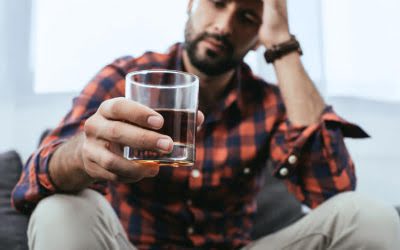Content
Some experts have suggested blood pressure and alcohol increases cortisol, a stress hormone leading to higher blood pressure. Others suggest inflammation and oxidation are effects of alcohol consumption, both increasing blood pressure. Drinking excessive alcohol is considered one of the most common causes of raised blood pressure, leading to other health problems. This is the reason why doctors will question a patient’s alcohol intake when a high blood pressure reading is measured. Many people don’t realize they have hypertension until they have it measured because early high blood pressure doesn’t bring on troublesome symptoms. The alcohol intake outcome measure, the Chronologic Drinking Record,19 was administered at the third screening visit and at 3, 6, 12, 18, and 24 months after randomization.
- We included 32 randomised controlled trials involving 767 participants published up to March 2019.
- Like soda, other sweetened drinks such as iced tea, for example, are packed with sugar, and iced tea is one of the most commonly consumed sugar-sweetened beverages in the United States.
- The aim of Bau 2011 was to determine the effects of alcohol on heart rate variability, so study authors did not measure and report DBP.
- This is due to its high levels of antioxidants called polyphenols, which have been linked to better heart and gut health.
The second factor was a blocking factor and was determined by dividing https://ecosoberhouse.com/ into 5 approximately equally sized groups based on level of change in self-reported alcohol intake from baseline to the 6-month follow-up visit. The goal of the intervention was to reduce alcohol intake to the lesser of 14 drinks per week or 50% of the participant’s own baseline alcohol intake level. The intervention was administered by women from diverse disciplines and with diverse educational and career histories, who were centrally trained in special intervention techniques.
Characteristics of included studies [ordered by study ID]
First, there was the possibility of undesired bias and imprecision due to imputations of missing statistics. Most of the included studies did not report the standard error /standard deviation of the mean difference for the outcomes of interest. As described in our protocol, when we were unable to obtain the required SE/SD from study authors or by calculation from the reported P value or 95% CI, we imputed data according to the pre‐specified imputation hierarchy. We most often used the reported endpoint SE/SD value to impute the SE/SD of MD. This is known to provide a good approximation of the SD of change in BP so is unlikely to lead to bias.

People who drink heavily should talk to their doctor about how alcohol is impacting their blood pressure. Drinking temporarily lowers a person’s blood pressure right after drinking. Medical News Today has strict sourcing guidelines and draws only from peer-reviewed studies, academic research institutions, and medical journals and associations. We link primary sources — including studies, scientific references, and statistics — within each article and also list them in the resources section at the bottom of our articles.
Marczinski 2018 published data only
Rehab facilities can help people develop the tools they need to live a sober, healthy lifestyle. Beer and other alcoholic drinks raise blood pressure when used heavily. Someone who consistently drinks two or more beers a day is at an increased risk of having high blood pressure. If you have high blood pressure, avoid alcohol or drink alcohol only in moderation. For healthy adults, that means up to one drink a day for women and up to two drinks a day for men.
- This increases the sensitivity of the blood vessels to compounds that constrict them.
- According to a large-scale study⁵ with more than 17,000 participants, those categorized as moderate or heavy drinkers were at a higher risk for high blood pressure than those who didn’t drink alcohol.
- Chen 1986 reported that two participants in the alcohol group dropped out of the study for unknown reasons, so data analyses were based on eight participants in the alcohol group and on 10 participants in the control group.
- They mentioned only that change in blood pressure was not significant.
- On the bias produced by quality scores in meta-analysis, and a hierarchical view of proposed solutions.
- In this study, alcohol had no significant effect on DBP in the four groups.
- Blood pressure values have been imputed when measurement data were not available.
Alcohol consumption guidelinesdefinemoderate drinking as one drink per day for women and two drinks per day for men. Within this range, alcohol use may give certain groups of people beneficial effects, including lower blood pressure. People who are more at risk of alcohol misuse, including those with a personal or family history of alcoholism or substance use disorder, shouldn’t start drinking because they hope it will help with hypertension.
Discover which clinical trials you are eligible for
However, more research is still needed on reversing high blood pressure caused by prolonged drinking. The impact of coffee consumption on blood pressure, cardiovascular disease, and diabetes mellitus. In addition to following a heart-healthy diet, some types of drinks may also be helpful when it comes to lowering your blood pressure. Eating lots of fruits, vegetables, and whole grains can help increase your fiber intake and ensure you’re getting the nutrients you need to support healthy blood pressure levels.
For the UK, we modelled the effect of a reduction of alcohol consumption for 50% of the population drinking more than two standard drinks per day . We classified seven studies as having high risk of bias (Agewall 2000; Bau 2011; Dumont 2010; Fazio 2004; Karatzi 2013; Maufrais 2017; Van De Borne 1997). Agewall 2000 measured blood pressure upon arrival of participants and did not measure blood pressure after the intervention.























